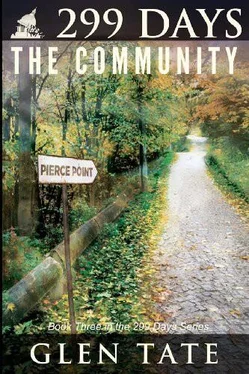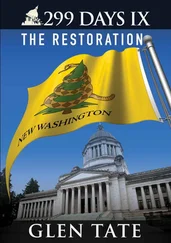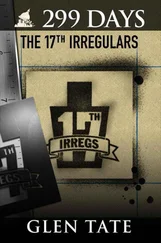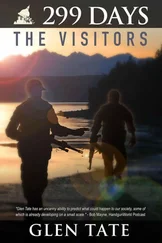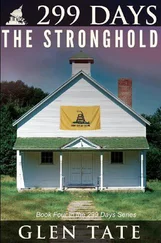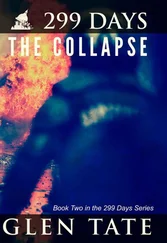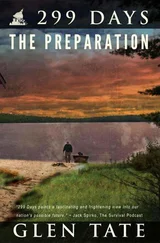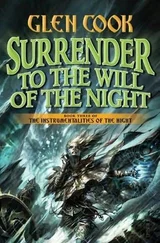Jason continued. “One bad thing out there is that most law enforcement and some Guardspersons,” he used the politically correct term instead of “Guardsmen,” “are going back to their families. They’re worn out and overwhelmed. We don’t have figures on it, but there is a pretty significant AWOL problem. So we’ve come up with a solution: the Freedom Corps.” The news about Freedom Corps had leaked out a few days ago, but the people in the conference room likely had not heard about it, so Jason briefed them.
“It’s a civilian law enforcement auxiliary,” he continued. “It’s loosely modeled on AmeriCorps and all that. The feds came up with it. So we’ll be rolling out the Freedom Corps here. People are encouraged to join up and they can take care of their neighborhoods. They won’t be armed by us—we don’t have any extra weapons—but they are authorized to carry guns.” He paused.
“Oh, that’s the other thing,” Jason said. “Guns. We’ve banned them. Private ownership is illegal. Now, we’re not—I repeat—not —going to seize them. We don’t have the person power to go get them, which is not for public consumption, but the part about guns being banned is. We can’t have criminals and vigilantes out there. If the authorities, which now include the Freedom Corps, find someone with a gun, they can seize it. No one will be arrested unless there is some other reason to do it.”
Jason was on a roll. “Here’s another thing not for public consumption: there are no jails any more. They emptied out, first from budget cuts a few weeks ago and now because the guards either went home or were killed, so we have no place to put law breakers. Local law enforcement and some Guard units are creating makeshift detention facilities. They’re using schools and that kind of thing, but we’re going out of our way not to arrest people because we have no place to put them.” He thought for a moment, “And we have nothing to feed them. Yet.”
He waved his arms for emphasis, “Stress to people that the President has this authority in an emergency. It’s part of his authority as Commander in Chief and it’s authorized under the Insurrection Act and the NDAA.”
“Also stress,” Jason continued, ”that all of this is temporary. As things go back to normal, we’ll end all of this.”
Jason pointed his finger up in the air to make a point. “That’s the other thing: normal. Stress how things will get back to normal. Remind people of what normal is and will be. Tell people they’ll be able to go back to their jobs, get groceries, even go out to eat. People need hope. Thinking that normal things are just around the corner is what they need.” Even though it’s not true, he thought to himself.
Jason had been in meetings with the Governor in which she made it clear that most of these “temporary” measures would be permanent. The state needed to take over most of the economy to dig itself out of this financial hole. Besides, people were begging the state to take care of them. It was perfect.
Jeanie sat back and thought. She could spin this stuff. No problem. Most people would be glad their government was “doing something.” She was troubled by it, though. This ration card—or Freedom Card or whatever—was the perfect way to control people. Pop off about the government and your card gets zeroed out with a few keyboard clicks. Support the government, and magically your account balance goes up.
She thought about Grant and the other WAB guys who were on the POI list. Well, there weren’t any jails or any cops, so they probably wouldn’t be arrested. Given all the things on the government’s plate right now, arresting political opponents couldn’t possibly be a high priority. Besides, they were just “persons of interest;” they weren’t actually wanted for a crime. They’d be fine, she told herself.
But the gun thing really disturbed her. She didn’t personally own a gun, but she was a Republican political strategist. Banning guns would cause most conservatives and many independents to hate the government. This was a really big deal, and these liberals didn’t seem to understand that. She knew that in rural areas and good chunks of the suburbs, people would hear that guns—things they desperately needed right now—were illegal and some neighbor in a funny Freedom Corps helmet would be taking them. Oh, but don’t worry, no one is going to jail…because there are no jails. So you can’t have a gun but there are no jails to put bad guys in. Only politicians could come up with this. But…
Hey, you’re taken care of, Jeanie reminded herself. She knew her FCard would be loaded up. Well, actually, she’d be eating great food there at the Camp Murray DFAC. She had the best organic oatmeal served to her and machine gun nests protecting her. She was in her late-twenties now. Maybe she had been too idealistic about politics and conservatism and Republicans and all of that. She needed to take care of herself and her boyfriend. And the State of Washington was helping her do a very good job of that right now.
Jeanie started dialing the phone to start her day long talks to reporters. She had some news to get out there. The State of Washington was taking bold actions to help people in this temporary situation, and pretty soon things would be back to normal.
Chapter 88
The Big Meeting
(May 8)
The drive back to Pierce Point was quiet. The roads were packed. There were many cars and trucks loaded up and leaving the town, heading out into the sticks where people had cabins. It looked like the Friday before Memorial Day, Fourth of July, or Labor Day, except it was Tuesday, and the people looked terrified instead of relaxed.
Still, the people on this road were a tiny fraction of a percent of the people back in Olympia and its surrounding towns. Only a very small number were bugging out. Most of the people were just sitting in their homes awaiting official instructions from the TV and internet. Almost none of them had ever experienced anything like this, so they had no idea what to expect. This was the first time stores had been out of things, the first time they had run out of cash, and the first time police were practically nowhere to be found. Most people couldn’t believe this would last long. Many thought it would be a few days off work or school, like a snow day that went on for a week, or so.
As the convoy reached the turnoff to Pierce Point Road, they slowed down to make it through the gate. Paul’s gate was up now and was a beautiful piece of work. It was a solid four-inch diameter metal pole with a solid anchor and lock. It was possible for a person to go under the gate, but it would take some effort and some time, which meant the guards would have plenty of opportunities to shoot anyone trying it. The metal pole gate would stop all vehicles.
Dang, Pow thought, this entrance to Pierce Point was made to be defended. The 100-yard stretch from the main road to Frederickson to the bridge gave entering vehicles time to slow down so they could be evaluated for entry. The two-lane bridge was just wide enough for a car parked sideways to block the entry. The volunteer fire station on the Pierce Point side of the bridge was perfect for stationing men. To top off the perfection of this defensible position, the road after the bridge went up a hill, with a beautiful treeline to pack full of snipers.
The road was the only practical way into Pierce Point. The rest of the development was surrounded by a small river in some places, and by steep hills on the rest of the boundary. Intruders avoiding the bridge and the guards would have to go from the Frederickson road, across a small river, across some open ground that had houses flanking it with fantastic fields of fire, and up the side of the hill. It was too steep for vehicles; intruders would have to be on foot. Then the intruders would have to go up Pierce Point Road for about a half a mile; a road with a treeline for that half mile that was perfect for ambushes. A well trained and equipped military unit could make it into Pierce Point, but no one short of that could.
Читать дальше
